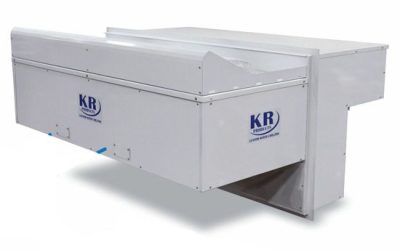Aluminum tubing and nylon connectors together provide a flexible, light-weight, easily-assembled solution for a wide range of applications. Since aluminum square tubing connectors are so versatile, it is the tubing specifications that afford the most opportunities for decision-making. Being familiar with a few basics with respect to aluminum alloys can prepare you to make the best choice for your next project. Let’s look at some key elements of understanding these alloys in preparation for utilizing tubing connectors.
Four-Digit Wrought Alloy Identification System
Pure aluminum is light weight, corrosion-resistant and reflective, and it conducts electricity well; however, it is not strong enough to be particularly useful in most commercial applications. In order to take advantage of the beneficial properties of aluminum, then, a variety of alloys have been developed.
The aluminum industry utilizes a four-digit numbering system to identify wrought aluminum alloys.
* The first digit represents the major alloying element – or elements. For example, the initial digit 2 stands for copper, 3 for manganese, 4 for silicon, 5 for magnesium, 6 for magnesium and silicon, and 7 for zinc.
* The second digit, if other than zero, communicates whether modifications have been made to the original alloy. For example, a 1 in the second position would indicate that the alloy was the first modification.
* The third and fourth digits name the specific alloy in a series.
Alloys Commonly Used for Aluminum Tubing
Aluminum square tubing connectors may be used effectively with a variety of commonly-used alloys.
* 2024 – Valued for its high strength and fatigue resistance (making it ideal for aerospace applications), its corrosion resistance is low. Additionally, 2024 displays average machinability but is not considered to be weldable.
6061 – The most commonly used aluminum alloy, 6061, is strong, heat treatable, weldable and fairly easy to machine. It can be anodized to add corrosion resistance.
* 6063 – Known as the ideal choice for architectural applications, 6063 has only about half the strength of 6061 but demonstrates excellent corrosion resistance and a desirable smooth finish.
* 7075 – Another aerospace-grade alloy, 7075 is one of the strongest alloys of aluminum. It is rated as average for machinability, corrosion resistance and response to anodizing but is not weldable.
For expert guidance in identifying the specific aluminum tubing that would be the best fit for your next project, contact the experts at www.eagle-aluminum.com. Eagle Mouldings is a reputable single source for standard and custom aluminum tubing, fittings and connectors. If we don’t have it, our design and production specialists will help you create it.



